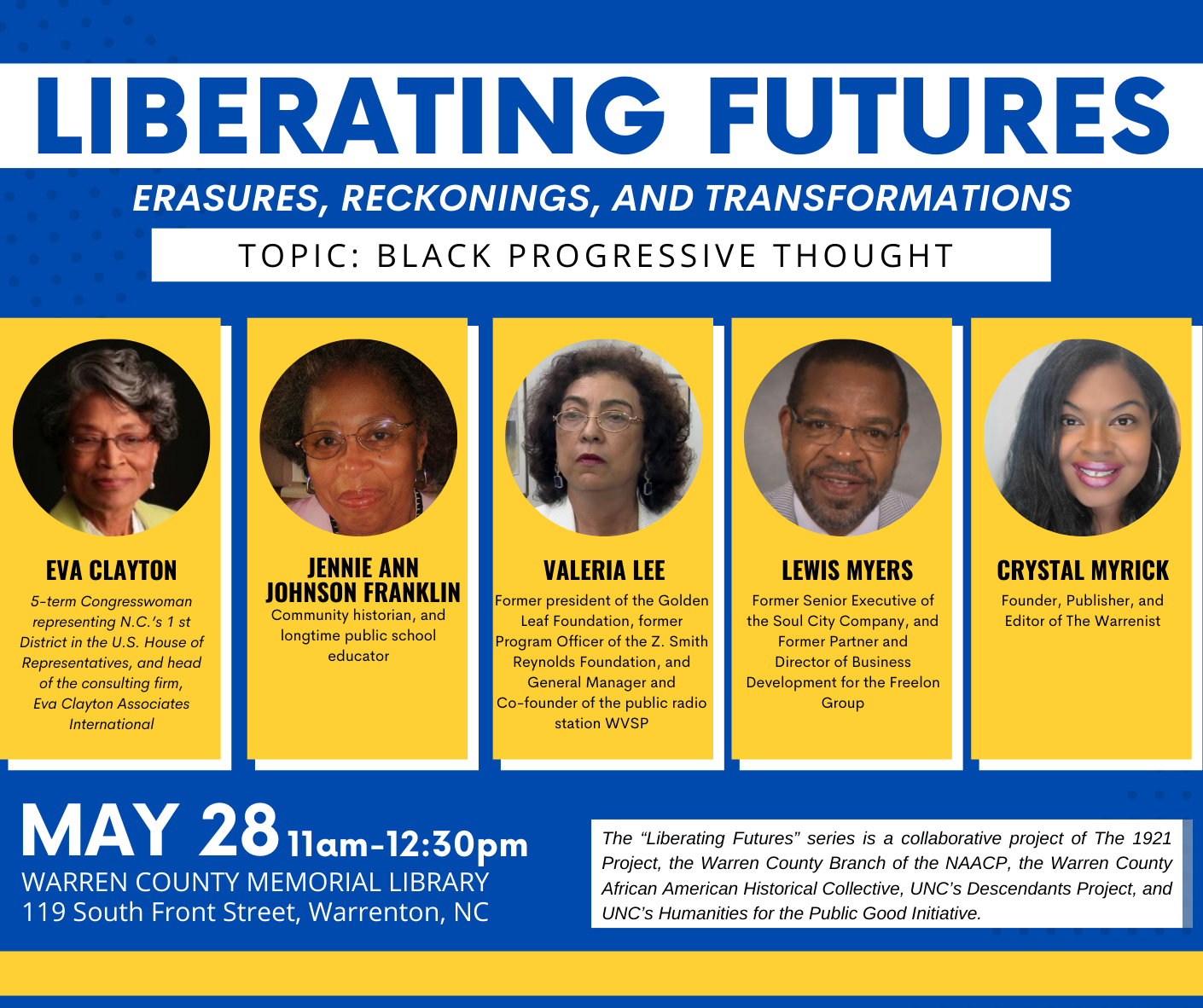Community
“Black Progressive Thought” Focus of Upcoming Liberating Futures Discussion
The discussion focuses on uncovering the longstanding legacies of progressive anti-racist action in Warren County, from early educational reform initiatives to Civil Rights struggles and environmental justice.
When strangers travel the rural roadways of Warren County, few would imagine that this land was once the site of a remarkable experiment in city-building.
In the late 1960s, Soul City—a visionary project spearheaded by the Civil Rights activist Floyd McKissick—began to emerge from the farmlands of an old antebellum plantation. McKissick and his partners marshaled federal and private funds to begin building a new town from the ground up, believing that the best way to realize the potential of communities whose futures had been consistently denied by racist systems was to give those communities a chance to collaborate, create, and thrive. And so Soul City was born.
The dream blossomed with the early building of infrastructure, homes, businesses, a health clinic, and more, laying the foundation for a vibrant new community, and drawing many who shared McKissick’s vision to Warren County. The ambitious project, though, eventually fell victim to the very forces that Soul City’s planners had so hoped to avoid. White supremacy claimed another victory in Warren County. But only over the actual construction. The dream of progressive possibility—of self-realization and community empowerment—stayed very much alive.
Warren County has long served as a home for such dreams among its Black communities. Tales told from the days of enslavement recount the stories of Black women and men who challenged their status and claimed (by force when necessary) their personhood and their futures. The post-Emancipation years witnessed an explosion of school building and commercial creativity, charting a legacy of progressive community building that stretched well into the 20th century. It should come as no surprise that the state’s first Black representative to the United States Congress came from Warren County, or that that one of the region’s most widely applauded teacher-training schools for African Americans began in Warrenton. Civil Rights pioneer Ella Baker—who is widely credited as a key founder of the Student Nonviolent Coordinating Committee—hailed from Warren County, as did Eva Clayton, who in 1992 became the first Black congressional representative from North Carolina since 1901. The dream has deep roots here.
The desegregation struggles of the 1960s, the founding of the community radio station WVSP, the birth of the environmental justice movement with the PCB protests—Warren County has long been a site of progressive political thinking and pointedly anti-racist community action. The “Black Progressive Thought” panel addresses this legacy, bringing together a group of activists, community developers, educators and policy analysts to reflect on the past and imagine a new future, demonstrating the vibrant connections between today’s Black Lives Matter struggles and a proud local history that’s often been underappreciated, in large part because it’s been so carefully erased.

Panel Moderator:
Crystal Myrick – Founder, publisher, and editor of The Warrenist
Panelists:
Eva Clayton – 5-term Congresswoman representing N.C.’s 1st District in the U.S. House of Representatives, and head of the consulting firm, Eva Clayton Associates International
Jennie Ann Johnson Franklin – Community historian, and longtime public school educator
Valeria Lee – Former president of the Golden Leaf Foundation, former Program Officer of the Z. Smith Reynolds Foundation, and General Manager and Co-founder of the public radio station WVSP
Lew Myers – Former Senior Executive of the Soul City Company, and Former Partner and Director of Business Development for the Freelon Group
The “Black Progressive Thought” discussion takes place on Saturday, May 28, 2022 at 11am at the Warren County Memorial Library (119 S. Front Street, Warrenton, NC).
The “Liberating Futures” series is a collaborative project of The 1921 Project, the Warren County Branch of the NAACP, the Warren County African American Historical Collective, UNC’s Descendants Project, and UNC’s Humanities for the Public Good Initiative.
This event is free and open to the public.